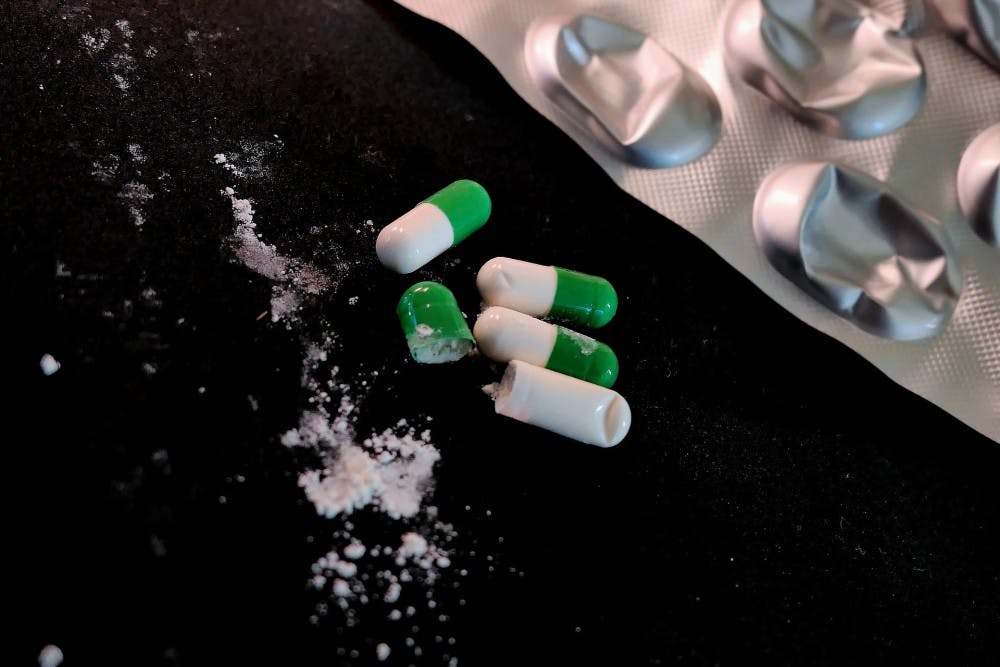I have been listening to Lil Wayne since I was in the fifth grade. But it wasn’t until one lonely summer night, after I stumbled upon a compelling piece on Vice, that I discovered the best track he’s ever produced: “I Feel Like Dying.” The song, leaked online in 2007, piercingly narrates the orgasmic highs and apocalyptic lows of drug addiction — the highs that always make the lows worth it, and the lows that always make the highs worthless: the glorious, vicious paradox of hardcore chemical alteration.
If the context of its time is accounted for, the song is nothing short of revolutionary. In 2007, rappers generally weren’t mentioning Xanax or Codeine or other depressants, as Wayne did in “I Feel Like Dying,” and through the track, Wayne inaugurated a form of hip-hop that was okay with melancholic, de-masculinized vulnerability.
Hence, as the Vice piece argues, “I Feel Like Dying” may have singlehandedly fostered the age of emo rap, a product of Soundcloud and other relatively underground internet platforms. Some of the biggest names in music over the last several years — Lil Peep (who died of an overdose in 2017 at 21), Lil Xan, Post Malone, Mac Miller (who died of an overdose in 2018 at 26), and XXXTentacion (who was murdered in June 2018 at 20), to name several — emerged from this dark, moody genre. These sad-boy rappers captured the grisly intrapersonal, and interpersonal, violence of emotional poverty and its psychosocial neighbors — nihilistic depression, suicidality, drug abuse, loneliness, and other afflictions of contemporary American life.
This genre goes beyond hip-hop. The series “Euphoria,” for example, is perhaps emo rap for premium cable. The show, whose first season aired on HBO this summer, is ostensibly about drugs, but, really, it’s concerned with the traumas of Gen Z — roughly, those of us born between 1997 and 2012. In “Euphoria,” the stupefaction of getting stoned serves as a pathway toward purifying intimacy in an increasingly depersonalized sociological landscape.
The show follows the escapades of 17-year-old Rue (emotively played by Zendaya) and her mostly high-school-aged peers. Upon entering her junior year, Rue is fresh off a stint in rehab after she overdosed several months before, and she’s eager to start using again. Rue’s painful, turbulent childhood — the premature death of her father, her experimentation with OxyContin at 13 — likely contributed to her teenage anguish.
To its credit, the show is not overly concerned with the socioemotional dynamics of drug abuse; rather, it wants us to see Rue as someone oppressed by not necessarily her neurochemistry or the legacy of the past, but by the demoralizing psychosocial metaphysics of the moment — the numbing sterility of the present tense. Drugs, for Rue, are simply an escape from a world that’s deprived her of what she really wants. As Doreen St. Félix incisively put it in The New Yorker, “her chemical cravings work in service of a spiritual one.”
The intensifying depressiveness of mainstream American culture correlates with the psychological situation on the ground. Amid a rising national suicide rate that has approached epidemic levels, the unyielding opioid crisis, increasing rates of depression and anxiety for adolescents, and a generalized feeling of relational loneliness and social disempowerment, it’s relatively easy to discern why we overidentify with sad-boy rappers and characters like Rue.
Princeton’s no stranger to this emotional crisis. Of course, by many metrics we are blessed beyond calculation — winners of the fundamentally inequitable lottery of life and statistically likely to find professional success and stability. But existential crises know no boundaries. So many of us are in pain, I can sense it. So many of us are struggling. So many of us need a hug, a shoulder to cry on, someone to talk to, or just someone to hear them.

But it’s funny: as I walk around campus each day, even during my weakest moments, I can’t escape feeling something bordering on hope for us all.
Samuel Aftel is a senior from East Northport, N.Y. He can be reached at saftel@princeton.edu.









